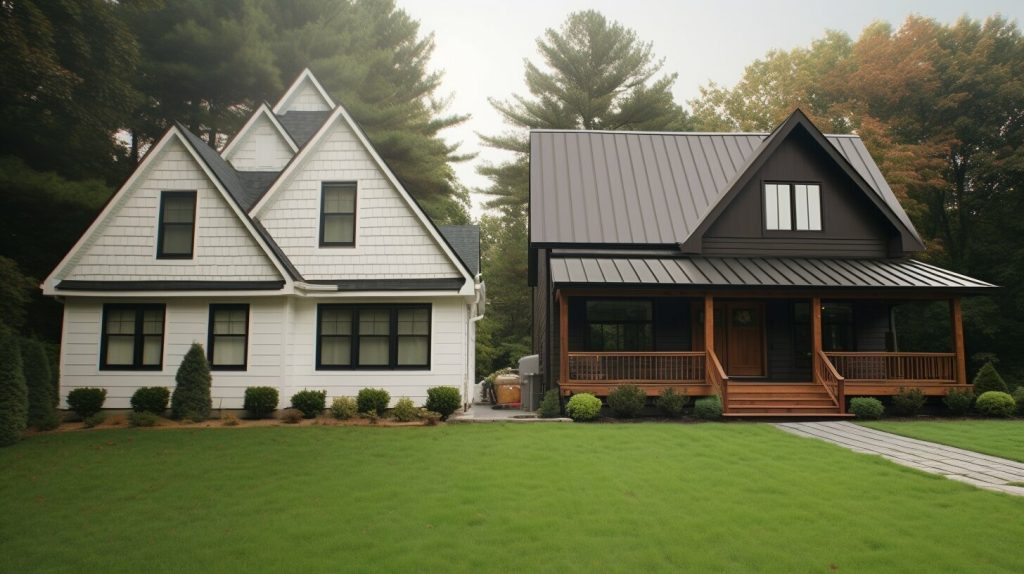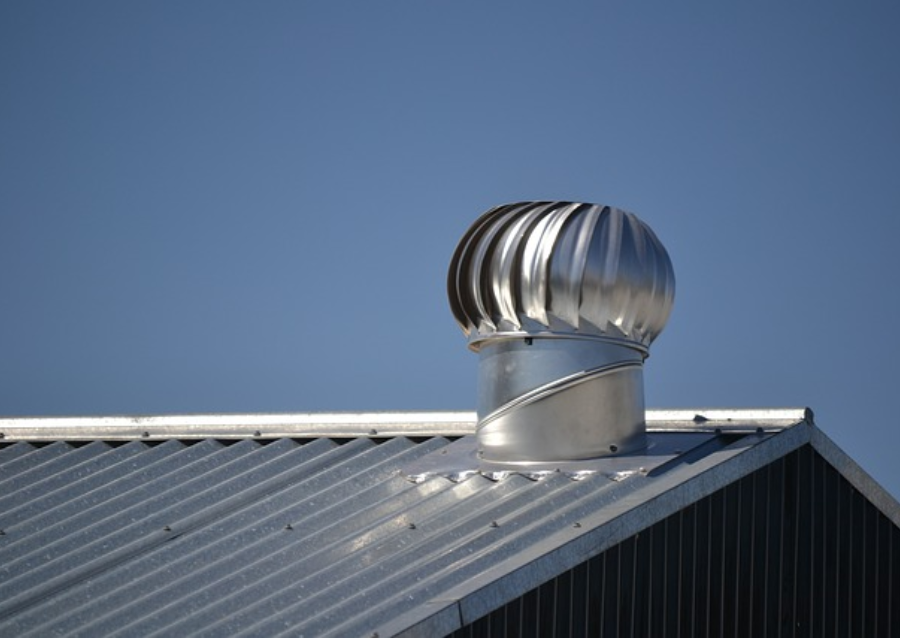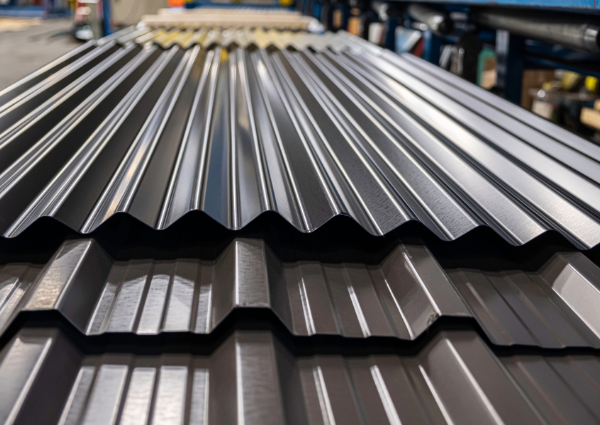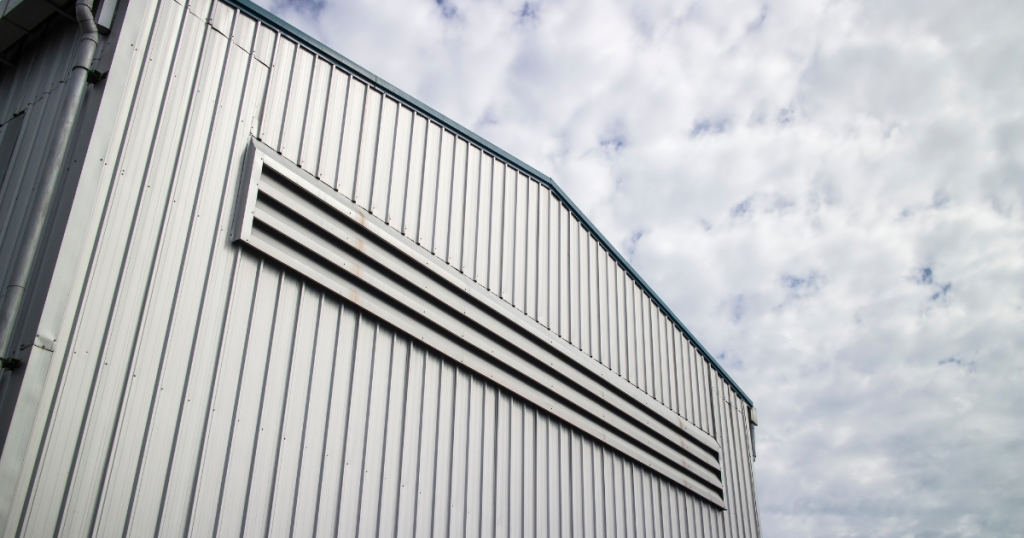As business owners, we know that investing in a durable and long-lasting roof is essential. However, with so many options available, choosing the right one can be challenging. Two of the most popular roofing choices are metal and shingle roofing. In this guide, we will explore the cost differences between these options, enabling you to make an informed decision that best suits your budget and needs.
Key Takeaways:
- Understanding the cost differences between metal and shingle roofing options is crucial for business owners.
- Weighing the upfront costs, long-term savings, and other relevant factors before making a decision can ensure your roofing investment is worthwhile.
- Factors such as material options, roof pitch, and installation complexity are important to consider when comparing metal and shingle roofing costs.
- Ultimately, choosing the right roofing option involves evaluating budget constraints, desired durability, and aesthetic preferences.
Metal Roofing Costs
When it comes to metal roofing, it is essential to understand the costs involved in both materials and installation. On average, the cost of metal roof installation is higher than shingle roofing, ranging from $5.50 to $12 per square foot.
The cost of the metal roof itself can vary depending on the type of metal used. For example, copper and zinc are more expensive than steel or aluminum. Additionally, the thickness of the metal can affect the cost.
However, it is important to consider the long-term cost benefits of choosing metal roofing. Metal roofing is incredibly durable, lasting up to 50 years with minimal maintenance. This longevity can result in significant cost savings over time.
Moreover, metal roofing is energy efficient and can reflect sunlight, reducing cooling costs in hot weather. In areas prone to wildfires, metal roofing can also provide added protection due to its fire-resistant properties.
Overall, while metal roofing may have a higher upfront cost, the long-term savings and benefits can make it a worthwhile investment for businesses.
Shingle Roofing Costs
When it comes to shingle roofing, business owners must consider the costs involved in both installation and maintenance. The average cost of shingle roof installation varies depending on the size and complexity of the roof, as well as geographic location and labor costs. On average, the cost per square foot for shingle roofing installation is between $3.50 and $7.50.
While shingle roofs are a popular choice due to their affordability, it is important to keep in mind the potential maintenance expenses that may arise. Regular maintenance is necessary to ensure that the shingles remain intact and free from damage. With proper maintenance, shingle roofs can last for 20 to 30 years, but repairs and replacements may be necessary over time. These additional expenses must be factored in when considering the overall cost of shingle roofing.
The cost of shingle roofing can also be influenced by the type of shingle material chosen. Asphalt shingles are the most commonly used material due to their affordability, but they are not as durable as other options such as metal or slate. Other shingle material choices include wood, metal, tile, and slate. These options can vary in cost, but they may offer greater durability and aesthetic appeal.
Factors Affecting Metal Roofing Costs
When it comes to metal roofing, there are several factors that can impact the cost of installation. Business owners must consider these factors when deciding if metal roofing is the right choice for their building. Here are a few key points to keep in mind:
Material Options
One of the most significant factors affecting the cost of metal roofing is the choice of material. Different metals come with varying costs, with some materials being more expensive than others. For example, copper and zinc materials tend to be on the pricier side compared to aluminum and steel options.
Aside from material cost, another important factor to consider is durability. While a more expensive metal material may require a larger upfront investment, it may provide long-term cost savings due to its durability and resistance to weather and natural wear and tear.
Complexity of Installation
The complexity of the installation process is another factor that can impact metal roofing costs. The cost of installation can increase if the roof has a unique shape or intricate design that requires specialized installation techniques. Additionally, if repairs or retrofitting are required before the installation, this can increase the overall cost of the roofing project.
It is essential to work with experienced and professional contractors to ensure a successful and cost-effective metal roofing installation. With the right team, installation complexity can be managed effectively, and costs can be kept under control.
Factors Affecting Shingle Roofing Costs
When it comes to shingle roofing costs, several factors can come into play. Understanding these factors can help business owners make an informed decision about their roofing investment.
Shingle Material Choices
The choice of shingle material can significantly impact the overall cost of your roofing project. Different materials come with varying price points, with some options being more expensive than others.
For instance, asphalt shingles are generally the most affordable option, with an average cost of $1.50 to $5.50 per square foot. On the other hand, wood shingles can cost between $5 to $10 per square foot, while slate shingles are the most expensive, costing between $20 to $40 per square foot.
Rooftop Pitch
The pitch of your roof can also influence the cost of your shingle roofing project. A steeply-pitched roof will be more challenging to work on, requiring more time and labor, which can drive up costs.
For example, a flat roof will usually be the least expensive to re-shingle, while a medium-pitched roof can be slightly more expensive. A steep roof with an angle of greater than 12/12 pitch will be the most expensive to re-shingle due to the added labor required for safety reasons.
By considering these factors, you can develop an accurate estimate of the costs involved in your shingle roofing project and choose the best materials and installation process to meet your specific requirements and budget.
Comparing Metal and Shingle Roofing Costs
Now that we have examined the individual costs associated with metal and shingle roofing options, it’s time to compare them. Comparing the costs of these two types of roofing is essential for making an informed decision that suits your business’s budget and specific needs.
Upfront Costs: When it comes to upfront costs, metal roofing is generally more expensive than shingle roofing. However, it is important to note that metal roofing has a longer lifespan and requires less maintenance. Shingle roofing, on the other hand, has a lower initial cost but may require more frequent repairs and even replacement over time.
Long-Term Savings: While metal roofing may have a higher upfront cost, it can provide significant long-term savings. Metal roofing is highly durable and energy-efficient, which can lead to lower energy bills over time. Additionally, metal roofing requires minimal maintenance, which translates to lower maintenance expenses throughout its lifespan. Shingle roofing, while less expensive upfront, may require more frequent repairs and replacement, ultimately leading to higher long-term costs.
Comparing Costs in a Table:
| Cost Considerations | Metal Roofing | Shingle Roofing |
|---|---|---|
| Upfront Costs | Higher | Lower |
| Long-Term Savings | Significant | Less significant |
| Lifespan | Longer | Shorter |
| Maintenance | Minimal | More frequent |
As shown in the table above, metal roofing generally has higher upfront costs, but provides significant long-term savings due to its durability and energy efficiency. Shingle roofing, on the other hand, has a lower initial cost but may require more maintenance and ultimately result in higher long-term costs.
Choosing the Right Roofing Option for Your Business
As we’ve seen, several factors must be taken into account when choosing the right roofing option for your business. Two of the most important considerations are budget and durability.
When it comes to budget, it’s essential to set realistic expectations for upfront costs. While metal roofing may require a larger initial investment, it can provide long-term savings due to its durability and longevity. Shingle roofing, on the other hand, may be the more budget-friendly option, but it may require more maintenance and repairs in the long run.
Durability is another crucial consideration. A roof is a significant investment, and you need to ensure it is built to last. Metal roofing is known for its strength and durability, making it a popular choice for commercial buildings. However, shingle roofing can also be a durable option if the right materials are selected and installed correctly.
Additionally, aesthetic preferences should be considered when selecting a roofing option. Metal roofing provides a modern and sleek look, while shingle roofing offers a more traditional appearance.
Ultimately, the decision on which roofing option to choose should be based on a thorough evaluation of your budget and specific requirements. We recommend consulting with a professional roofing contractor to determine the best option for your business.
Conclusion
When it comes to choosing between metal and shingle roofing options, it is essential to consider the costs involved. By evaluating the upfront costs, long-term savings potential, and other factors such as material options, roof pitch, and installation complexity, business owners can make an informed decision.
Ultimately, the right roofing option for your business will depend on your budget, desired durability, and aesthetic preferences. While metal roofing may have a higher upfront cost, it provides long-term cost benefits and durability. On the other hand, shingle roofing is a popular choice due to its affordability and ease of maintenance.
Making an Informed Decision
We hope this guide has helped you compare and understand the cost differences between metal and shingle roofing options. By making an informed decision, you can ensure that your roofing investment is worthwhile and protects your business for years to come.
Remember, choosing the right roofing option for your business involves carefully considering several factors and evaluating your budget constraints. We encourage you to take the time to evaluate your roofing goals and needs before making a final decision.
Thank you for considering us as your trusted source for roofing cost information. We are confident that with our help, you will make the best decision for your business and investment.
FAQ
What are the key factors to consider when comparing metal and shingle roofing costs?
When comparing metal and shingle roofing costs, it’s essential to consider factors such as the upfront installation costs, long-term savings potential, desired durability, and aesthetic preferences.
How much does metal roof installation typically cost?
The average cost of metal roof installation can vary depending on factors like the size of the roof, choice of materials, and complexity of the installation process. It is recommended to consult with roofing professionals for accurate estimates.
What are the average costs associated with shingle roof installation?
The cost of shingle roof installation can vary based on factors like the size of the roof, choice of shingle materials, and labor costs. It is advisable to consult with roofing contractors to get accurate cost estimates for your specific project.
How do different roofing materials impact the cost of a metal roof?
The choice of roofing material can significantly impact the cost of a metal roof. Factors such as the type of metal (steel, aluminum, copper), gauge or thickness of the metal, and any additional coatings or finishes can affect the overall cost of the roof. It is important to consider these factors when evaluating metal roofing options.
What factors affect the cost of shingle roofing?
The cost of shingle roofing can be influenced by various factors. These include the type and quality of shingle materials chosen, the roof’s pitch or slope, and the complexity of the installation process. Considering these factors is crucial when budgeting for a shingle roof.
How do the upfront costs and long-term savings compare between metal and shingle roofing?
Metal roofing tends to have higher upfront costs than shingle roofing due to the cost of materials and installation. However, metal roofs can offer long-term savings through energy efficiency, durability, and minimal maintenance expenses. Shingle roofs may have lower upfront costs but may require more frequent repairs and replacement in the long run.
How can I choose the right roofing option for my business?
Choosing the right roofing option for your business involves considering factors such as your budget, desired durability, and aesthetic preferences. Evaluate the pros and cons of metal and shingle roofing, consult with roofing professionals, and make an informed decision based on your specific needs and priorities.
Ken Byler
Founder of Easy Roof Solutions, LLC. He started in the construction industry at the age of 14 and has been involved in it for over 25 years. His wide experience in commercial roofing speaks for itself.
Outside his roofing work, Ken enjoys being in the great outdoors, traveling to new places, and bonding with his wife and children.





